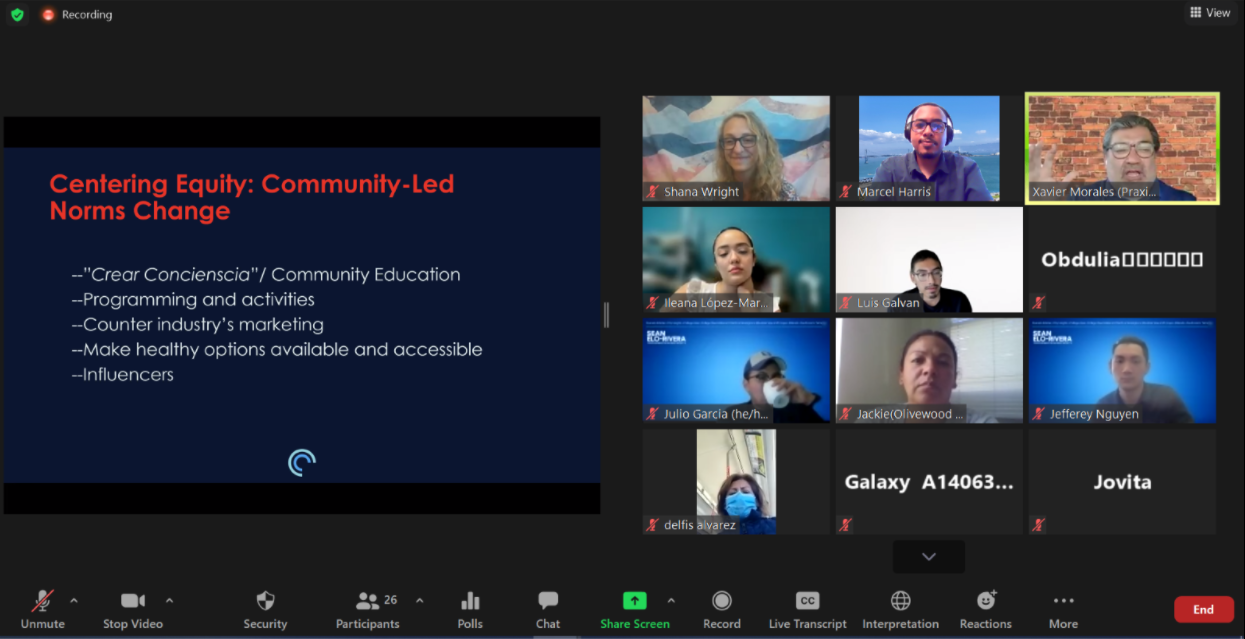
Last month, CA4Health, a program of the Public Health Institute, and the San Diego County Childhood Obesity Initiative (COI) hosted a presentation by Xavier Morales from the Praxis Project outlining the importance of centering community and equity around sugary drink taxes. Over 30 people attended the Friday afternoon event, including, community members from COLCH (Comité Organizador Latino de City Heights), Poder Popular, Kitchenistas, and staff from the Latino Coalition for a Healthy California, American Heart Association, and the Office of Sean-Elo Rivera at the city of San Diego.
The driving force behind CA4LessSoda in San Diego County comes from community residents who envision a healthier food environment for their children and a community more conscious of the consequences of consuming sugary beverages. Community residents from COLCH, Poder Popular, Kitchenistas, and the Youth Advisory Council (YAC) have been taking part in education and advocacy learning sessions around sugar-sweetened beverages, health outcomes and story-telling as a means of advocacy. In early June, community residents shared their stories with the Offices of Council Member Sean-Elo Rivera and Supervisor Nathan Fletcher in hopes of gaining their support in introducing a resolution to San Diego City Council and the County Board of Supervisors, calling on the Governor and State Legislature to repeal the current soda tax ban in California and support AB 1163: Restore local control to tax sugary beverages.
The increased momentum has reopened the conversation on the possibilities of implementing a soda tax in San Diego and how it can benefit low-income communities. In comes Xavier Morales, Executive Director of the Praxis Project and longtime health equity and environmental justice advocate, who was at the forefront of the Berkeley soda tax campaign back in 2014. Xavier highlighted the exploitation of minority communities by the soda industry and the importance of letting communities decide how to invest soda tax revenue back into their neighborhoods. Soda taxes, often seen as regressive, can actually be progressive as exemplified in Berkeley, where soda tax revenue was used to fund multiple community-driven programs, including the Multicultural Institute, Ecology Center, Healthy Black Families, Berkeley Unified School District’s Gardening and Cooking Program, and YMCA East Bay Early Childhood Impact.
As the San Diego CA4LessSoda working group continues to meet with local elected-officials, the campaign will take Xavier’s teachings and continue to keep the community at the forefront and center of every soda tax conversation. You can view Xavier’s presentation in English and Spanish here.
